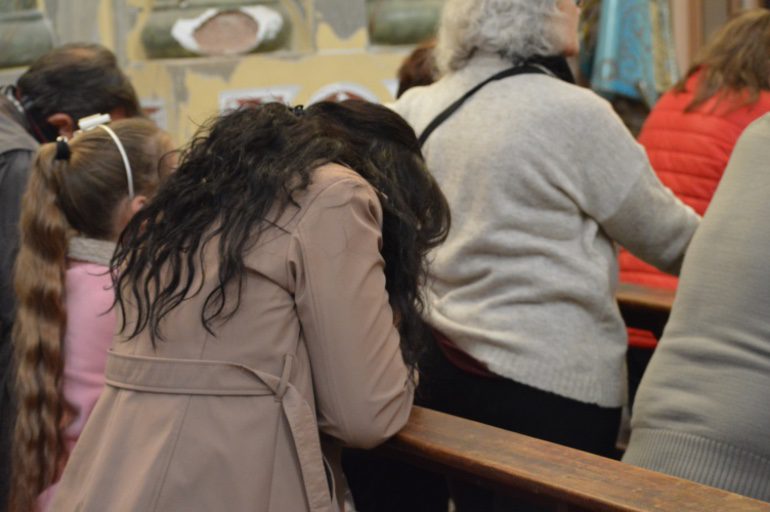Dear brothers and sisters, “This is the day the Lord has made; let us rejoice and be glad in it” (Psalm 118:24).
In today’s first reading, Isaiah presented God’s displeasure to the people. He was displeased by their burnt offerings of rams, fats of fatlings, and blood of calves, lambs, and goats. He detested their new moon and festivals and would not care about the sacrifices they offered to Him. In fact, their whole acts of worship were loathsome to the Lord, and the Lord would not listen to their prayers even if they were to pray more. Interestingly, the Lord had commanded them to offer sacrifices and burnt offerings to Him, as we read in various books of the Old Testament, especially the Books of Exodus and Leviticus. Why, then, did the Lord not take delight in the people’s worship, prayer, burnt offerings, and sacrifices?

The worship, prayer, burnt offerings, and sacrifices of the people (their religious activities) did not find favor with the Lord because they were offered with hands full of blood and hands stained with blood. The people came to God in worship while happily continuing their sinful living, performing their religious activities with unconfessed, sinful, and unrepentant hearts and wickedness.
The Lord is teaching us today that He is offended by hollow worship. He despises, abhors, and hates iniquity in our solemn assemblies. God wants us to worship and offer our sacrifices to Him, but He cannot stand our worship, our offerings, and sacrifices when we are full of wickedness and unrepentant sins. Jesus instructs us that if you bring your gift to the altar, and there recall that your brother (sister) has anything against you, leave your gift there at the altar, go first and be reconciled with your brother (sister), and then come and offer your gift (Matt. 5:23-24).
Act of Repentance: What God Requires
What God wants, expects, and desires of the people is an act of repentance. The Lord tells His people through His prophet, “Wash yourselves clean! Put away your misdeeds from before my eyes; cease doing evil; learn to do good.” God is calling us to a change of mind and heart (metanoia). He is calling us to purify and cleanse our hearts clogged with sin. We can wash ourselves clean in the Sacrament of Reconciliation, receive absolution (forgiveness of sins) and the grace that helps us avoid sin, and live a holy life.
Our repentance should be followed with concrete and good actions. The Lord instructs His people, “Learn to do good.” Thus, avoiding evil is not enough; we must positively do good acts. St. James says that faith without works is dead (James 2:20), and we can ask ourselves, too, what is the essence of repentance without accompanying good acts, works, or deeds?
Learn to Do Good
My dear people of God, we should take this instruction from the Lord seriously and learn to do good. Isaiah mentioned good deeds that the Lord expects from us, even though not exhaustively, such as maintaining justice, bringing peace, defending the widow, the orphan, the oppressed, and the downtrodden, standing for truth, and charitable deeds.
We know that doing good is all-encompassing. In the Gospel, Jesus Christ offers us other ways of doing good: listen to His word and make it a priority in our lives in such a way that we truly show that we love God above all things and that the love of family will not hinder us from doing the will of God. We are called to embrace our daily challenges and take up our cross to follow Jesus Christ; show hospitality to the prophet, God’s ministers, children of God, and those who are doing God’s work in one way or another. When we do good, we will indeed receive the reward.
Always remember that Jesus loves you!
[Readings for Monday Week 15: Isaiah 1:10-17; Matthew 10:34-11:1]
